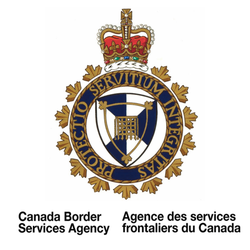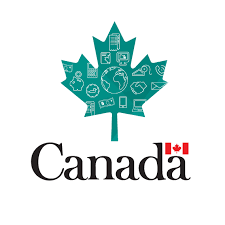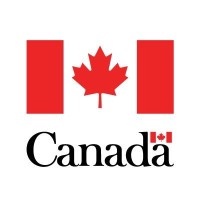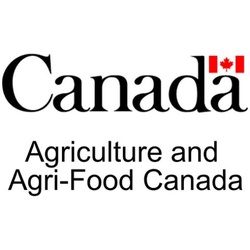
Open
Customs Bonded Warehouses
Last Update: March 4, 2026
Canada
Defers duty and taxes on stored imported goods for export
Other Support
Tax Credits
At a glance
Funding available
Financing goals
Selling in a new market
Eligible Funding
- Up to 60% of project cost
Timeline
- Unspecified
Eligible candidates
Eligible Industries
- All industries
Location
- Canada
Legal structures
- For-profit business
- Sole proprietorship
Annual revenue
- All revenue ranges
Organisation size
- All organization sizes
Audience
- All groups
Overview
The Customs Bonded Warehouses Program allows companies to defer payment of duties and taxes on imported goods until they enter the Canadian market, with no maximum funding amount specified. The program supports activities such as storage, minor manipulation, consolidation, and display of goods for importers, exporters, and companies involved in trade shows or facilitating the movement of goods within the North American market.
Activities funded
- Importing goods into Canada for storage or minor manipulations, such as marking, labelling, or repackaging, before release for domestic consumption or export.
- Consolidating imported and domestic goods in preparation for export or Canadian consumption.
- Storing goods temporarily in Canada for display at conventions, exhibitions, or trade shows, with the intention of exporting them after the event.
- Facilitating the movement and storage of goods as part of supply chain management for imports and exports in the North American marketplace.
Eligibility
- The applicant can be an individual, company, or entrepreneur wishing to operate a customs bonded warehouse in Canada.
- Both Canadian residents and non-residents are eligible to apply.
- The applicant must be able to present a completed application and provide a detailed site plan of the proposed warehouse location.
- The applicant's record-keeping system must be capable of tracking the movement of goods as required by the Canada Border Services Agency (CBSA).
- Applicants seeking to store alcoholic beverages must obtain and provide approval from the relevant provincial liquor authority.
Who is eligible?
- Importers of commercial goods
- Companies involved in consolidating imported and domestic goods for export or Canadian consumption
- Businesses importing goods for display at conventions, exhibitions, or trade shows and exporting them after the event
- Private sector operators seeking to manage their own customs bonded warehouse
- Entrepreneurs operating public warehouses for storage of imported goods by various importers
Who is not eligible
- Companies lacking required permits or authorizations for restricted or controlled goods.
- Warehouses intending to receive or transfer intoxicating liquor without written approval from the relevant provincial liquor authority.
- Entities wishing to receive or remove tobacco products for unauthorized purposes, outside the specified reasons (e.g., only for diplomats, export, duty free shop, ships' stores, or if the operator is a licensed tobacco or cigar manufacturer).
Eligible expenses
- Expenses related to the storage of imported and domestic goods in a customs bonded warehouse.
- Costs for minor manipulation of goods, such as marking, labelling, repackaging, disassembling or reassembling for packing or handling, displaying, inspecting, ticketing, packing and unpacking.
- Costs associated with cleaning, maintaining, or preserving goods within the warehouse.
- Expenses related to sorting, grading, trimming, filing, slitting, or cutting goods, provided these do not change the nature of the goods.
- Costs associated with compliance activities to meet Canadian or provincial law requirements while the goods are in the warehouse.
Eligible geographic areas
- All regions of Canada
- Non-residents (foreign companies) may also apply
Selection criteria
- Review of the E401 application form accompanied by a detailed plan of the proposed location.
- Inspection visit of the facility and the record-keeping system by the CBSA.
- Validation of the ability to ensure the identification and tracking of stored goods.
- Compliance with applicable documentary and regulatory requirements upon the entry of goods.
How to apply
- Step 1: Prepare Required Documentation
- Complete Form E401: Application for a Licence to Operate a Customs Bonded Warehouse.
- Prepare a detailed site plan of the proposed warehouse location, ensuring designated bonded areas for in-bond and domestic goods are clearly identified.
- For applications involving the storage of alcoholic beverages, obtain written approval from the relevant provincial liquor authority and attach a copy to your application.
- Step 2: Submit the Application
- Submit the fully completed Form E401, along with required documentation, via the CBSA Assessment and Revenue Management (CARM) Client Portal (CCP) or deliver it to the CBSA office nearest to the proposed warehouse location.
- Step 3: Review and Site Assessment by CBSA
- Upon receipt of your application, the CBSA will review your documentation.
- The CBSA will schedule a site visit to assess the proposed warehouse location and review your recordkeeping system.
- Step 4: Post Security Bond
- Upon initial approval, post security with the Receiver General for Canada. The required security typically amounts to 60% of the maximum duties and taxes that may be payable at any time within the first year of operation.
- Step 5: Issuance of Licence
- Once your application, site, and security are approved, the CBSA will issue a Customs Bonded Warehouse licence, a unique licence number, and a 4-digit sublocator code to be used in official documents.
- Step 6: Begin Operations
- Commence operations in compliance with CBSA requirements and maintain proper controls and records for all warehoused goods.
Additional information
- Goods can be stored in a customs bonded warehouse for up to four years, with possible extensions in specific circumstances as approved by the CBSA.
- Operators are required to maintain detailed records of all goods and activities in the warehouse to ensure compliance and facilitate periodic CBSA checks.
- Failure to comply with regulations may result in monetary penalties, suspension, or cancellation of the warehouse license.
- Special provisions exist for the handling and documentation of goods that are damaged, destroyed, or deteriorated while in storage.
Apply to this program
Frequently Asked Questions about the Customs Bonded Warehouses Program
Here are answers to the most common questions about the Customs Bonded Warehouses. This section explains what the program is, how much funding is available, eligibility requirements, application deadlines, and other important details to help you determine if this grant is right for your business.
What is the Customs Bonded Warehouses?
How much funding can be received?
Who is eligible for the Customs Bonded Warehouses program?
What expenses are eligible under Customs Bonded Warehouses?
Who can I contact for more information about the Customs Bonded Warehouses?
Where is the Customs Bonded Warehouses available?
Is the Customs Bonded Warehouses a grant, loan, or tax credit?
Apply to this program
More programs like this

Tax CreditsOpen
Scientific Research and Experimental Development (SR&ED) — Tax Incentive Program
Scientific research and experimental development tax credit

Tax CreditsOpen
Clean Technology Manufacturing (CTM) Investment Tax Credit (ITC)
Incentivize Canadian companies to invest in clean technology

Tax CreditsOpen
Clean Technology (CT) Investment Tax Credit (ITC)
Offer up to 30% refundable credit for capital investments in new clean technologies in Canada



Other SupportGrant and FundingClosed
Artificial Intelligence for Canadian Energy Innovation
Supports AI-driven solutions accelerating Canadian energy technology innovation

Other SupportOpen
AgriInsurance
Provides cost-shared insurance to protect producers from production losses

Other SupportOpen
CCC — Global Bid Opportunity Finder (GBOF)
Discover opportunities with governments around the world

Other SupportExpert AdviceOpen
ExploreIP
Find Intellectual Property available for licensing or collaboration

Tax CreditsOpen
Tax incentives for mining and exploration
Federal and provincial tax incentives support mining and exploration activities
Sign up to our platform to access the Customs Bonded Warehouses information sheet for free
Get access to 10,000+ programs, practical guides, personalized alerts, and an AI assistant to support your grant applications.